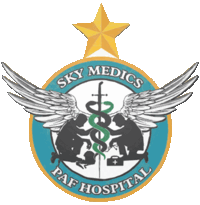-6jH-2Jkv.jpg)
1. Follow Your Doctor's Instructions
First and foremost, adhere strictly to the post-surgical instructions provided by your healthcare team. These instructions are tailored to your specific procedure, health condition, and recovery needs. They typically include guidelines on wound care, medication schedules, physical activity limitations, and signs of complications to watch for.
2. Manage Pain Effectively
Pain management is essential for your comfort and recovery. Take pain medications as prescribed by your doctor, even if you're feeling minor discomfort. If you experience excessive pain or notice unexpected changes, such as increased swelling or redness around the surgical site, contact your healthcare provider immediately.
3. Monitor Wound Care
Proper wound care is crucial to prevent infection and promote healing. Keep the surgical incision clean and dry as instructed by your doctor. Avoid touching or scratching the wound, and follow guidelines for changing dressings or bandages. Report any signs of infection, such as pus, excessive redness, or warmth around the wound, to your healthcare provider promptly.
4. Maintain a Healthy Diet
Nutrition plays a vital role in recovery. Eat a balanced diet rich in vitamins, minerals, and protein to support healing and boost your immune system. Stay hydrated by drinking plenty of water and fluids unless otherwise restricted by your doctor. Avoid excessive alcohol consumption and follow any dietary restrictions provided post-surgery.
5. Stay Active Within Limits
While rest is crucial for recovery, light physical activity can help prevent complications such as blood clots and muscle stiffness. Follow your doctor's recommendations regarding movement and exercise. Start with gentle activities like short walks and gradually increase intensity as advised. Avoid strenuous activities and lifting heavy objects until cleared by your healthcare provider.
6. Attend Follow-up Appointments
Attend all scheduled follow-up appointments with your healthcare provider. These appointments allow your doctor to monitor your progress, assess healing, and address any concerns or complications promptly. Be prepared to discuss any symptoms, changes in condition, or questions you may have about your recovery process.
7. Manage Emotional Well-being
Recovery from surgery can be physically and emotionally challenging. It's normal to experience a range of emotions, including anxiety, frustration, or sadness. Seek support from loved ones and consider talking to a counselor or support group if you're feeling overwhelmed. Taking care of your mental health is as important as your physical recovery.
8. Avoid Smoking and Tobacco Products
Smoking and tobacco use can impair healing and increase the risk of complications after surgery. If you smoke, consider quitting or at least refrain from smoking during your recovery period. Avoid exposure to secondhand smoke as well, as it can also hinder the healing process.
9. Follow Precautions Against Falls
After surgery, your balance and coordination may be temporarily affected. Take precautions to prevent falls and injuries at home. Use assistive devices like handrails and grab bars, especially in bathrooms and stairways. Clear pathways of clutter, secure rugs, and use non-slip mats to reduce the risk of slips and falls.
10. Stay Informed and Ask Questions
Stay informed about your condition, treatment plan, and expected recovery milestones. Don't hesitate to ask questions or seek clarification from your healthcare provider. Understanding what to expect during your recovery can help alleviate anxiety and empower you to take an active role in your healing process.

-I5en-6OY.png) Media Team
Media Team